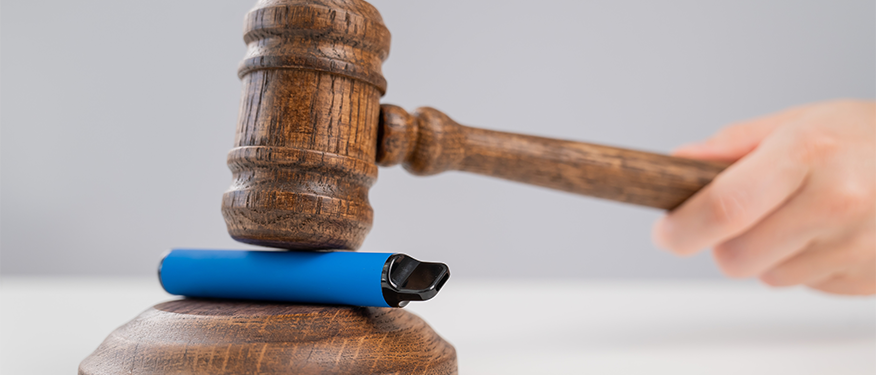Estimated reading time: 3 minutes
Tobacco is the highest-selling department in convenience stores, with cigarettes as the best-selling category, and other tobacco products, including e-cigarettes, ranking 4th. However, in recent years the Food & Drug Administration (FDA) has cracked down on the selling of flavored vape products due to their popularity with people who are underage. Therefore, avoiding selling illicit tobacco products, especially to minors, is on the mind of many convenience store owners, as doing so can lead to fines from the federal government or even the revocation of a store’s tobacco license.
In 2016, the FDA received expanded authority on e-cigarettes, allowing the agency to better regulate the tobacco industry as more smokeless options were introduced to the market. Legislators argued that this increase in authority would help smokers of traditional cigarettes quit and prevent younger people from smoking. However, 7 years later in 2023, nearly 40% of e-cigarette users are 25 or younger, per the CDC. According to the New York Times, brightly colored, sweet flavored vapes make for a huge share of the e-cigarette market in the United States, estimated at about $5.5 billion.
The FDA approves a handful of vapes, called Heated Tobacco Products (HTPs), to be legally marketed each year, from manufacturers like R.J. Reynolds and Altria. These include familiar brands such as Vuse and NJOY that line c-store shelves. The FDA effectively banned all flavors, apart from menthol and tobacco, from being made for cartridge-based vapes, such as Juul.
However, disposable vapes, such as Puff Bar and Elf Bar, are permissible. Therefore, teens are more likely to attempt to buy disposable vapes with flavors like lemonade and cotton candy, creating a huge market for unauthorized vape products. According to data collected by the Associated Press, the amount of unique disposable products has risen 1,500% since 2020, when the FDA banned sweet flavors of vape pods. In May of 2023, the FDA issued orders seizing shipments of Elf Bars and two other brands, citing the lack of FDA authorization for the products.
According to Politico, the FDA fined 22 retailers across 13 states $19,000 each for selling unauthorized e-cigarettes earlier this year, the first ever time retailers have been fined for selling the illegal products. The fines came after the agency issued multiple warnings to stop selling illicit vapes to the retailers.
To help protect retailers, c-store associations are looking out for more clarity on what e-cigarette products are legal to be sold in stores. The Energy Marketers of America (formerly the Petroleum Marketers Association of America), a retail association which represents c-stores and other retailers, filed a petition with the FDA in June of 2023 asking for clarity on which vapes are legal for c-stores to sell. The petition asserts that c-stores can help prevent illegal and dangerous tobacco products from reaching the hands of consumers, especially minors, provided that the FDA provides clearer guidance.
Similarly, the National Association of Convenience Stores (NACS) official position on flavored e-cigarettes is for the FDA to provide more clarity on what is and is not legal. According to NACS, a list of specific products, as opposed to a list of manufacturers, is necessary to gain proper transparency on illegal products.
Government intervention has proven to reduce teen vaping. In 2019, just before the FDA banned fruity flavors of popular Juul vapes, 28% of highschoolers reporting vaping nicotine. In contrast, by 2022 that number fell to 14%. NACS and the Energy Marketers of America are seeking greater transparency on what specific products are and are not authorized to aid in the prevention of teen vaping.
To learn more about how to reduce your risks as a tobacco retailer, check out our blog.


